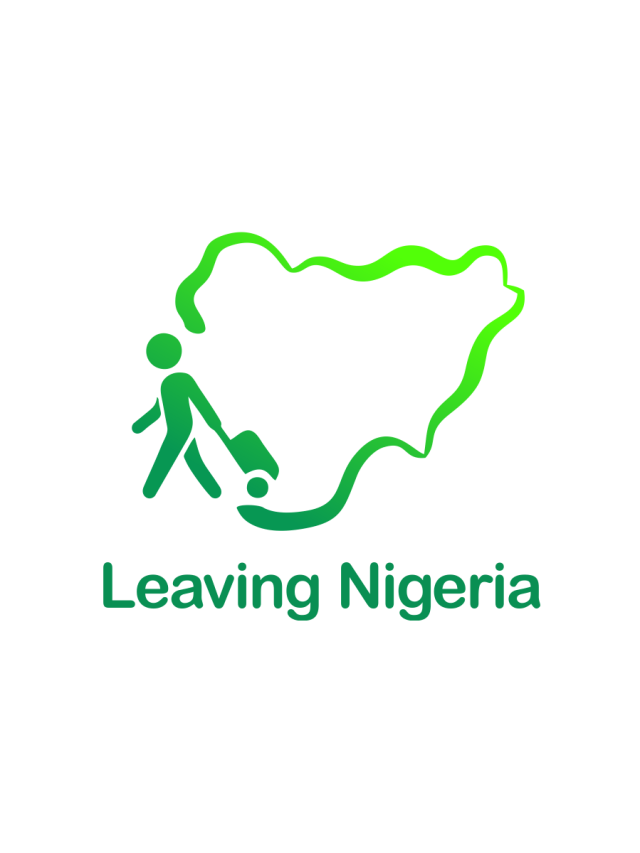
7 Top Countries that allow International Students to bring Dependents from Nigeria
Studying abroad is a transformative opportunity for many Nigerians, providing access to high-quality education, global exposure, and enhanced career prospects. But for married students or those with children, relocating alone can be emotionally difficult. Thankfully, some countries allow international students to bring dependents from Nigeria, enabling families to stay united while one member pursues academic goals.
Whether you’re starting a postgraduate course or an undergraduate degree, knowing where you can bring your spouse, children, or parents is essential. In this guide, we’ll highlight the top 7 countries that allow international students to bring dependents from Nigeria, including eligibility requirements, required documents, and useful tips.
1. United States of America
The United States of America remains one of the most desirable destinations for Nigerian students seeking world-class education. With over one million international students currently studying in the U.S., many of whom are from Nigeria, the country offers a diverse academic environment, top-ranked universities, and broad career opportunities upon graduation. Importantly, the U.S. is also one of the top countries that allows international students to bring dependents from Nigeria through the F-2 dependent visa.
The F-2 visa is designed specifically for the immediate family members of students holding an F-1 student visa, which is the most common visa type for full-time international students in the U.S. This visa allows the legal spouse and unmarried children under the age of 21 to accompany the student during study, however the dependents are not allowed to work or enrol in full time postgraduate studies.
Eligible dependents include:
- The legally married spouse of an F-1 visa holder.
- The unmarried child under 21 years of age of an F-1 visa holder.
The required documents include:
- Valid marriage certificate (for spouses) or birth certificate (for children) to establish a genuine family relationship.
- Proof of the primary F-1 visa holder’s status, such as a valid visa stamp, Form I-20,
- Evidence of financial capability to support the dependents during their stay in the U.S.
- A valid Form I-20 (Certificate of Eligibility)
- Valid international passport for the dependent, with a validity extending at least six months beyond the intended stay.
2. Canada
Canada tops the list of countries that allow international students to bring dependents from Nigeria. With its inclusive immigration policies and globally respected universities, Canada is a go-to destination for Nigerian students.
If you’re studying on an S-1 visa and are over 18 years old, you are permitted to sponsor your spouse, children under 22, or even parents and grandparents. For dependent children, they are permitted to attend elementary or secondary school in Canada without requiring a separate study permit. If your child is of school age and listed as a dependent in your application, they can enrol in public schools for free or at significantly reduced fees, depending on the province.
For children above the age of 18 who wish to pursue post-secondary education, they must apply for a study permit. You can check out Canada’s Family Class Sponsorship Program for detailed information.
Eligible dependents include:
- Spouse or common-law partner
- Children under 22
- Adopted children
- Parents or grandparents
Required documents:
- Marriage or birth certificate
- Valid international passport and travel history
- Proof of relationship
- Completed application forms
- Visa fee receipt
3. Australia
Australia has a well-structured immigration system and is recognised for its ability to accommodate international students with families. It offers dependent visas for international students, allowing them to bring spouses and children. Unlike other countries, the dependent spouses are allowed to work in Australia under certain conditions:
- If the primary student is enrolled in an undergraduate program, the spouse can work up to 48 hours per fortnight (two weeks).
- If the student is enrolled in either a master’s or doctoral degree (postgraduate coursework or research), the spouse can work full-time without restrictions.
For the dependent children, they are allowed to attend school in Australia during the family’s stay. Children of school age (typically between 5 and 17 years old) are required to be enrolled in school, whether it is public or private. In many Australian states, public school fees apply to children of international students, although fee waivers or reductions may be available depending on the visa type and duration of stay. It’s essential to check with the specific territory or state Department of Education for rules regarding school enrollment and tuition fees.
Eligible dependents:
- Spouse
- Children under 18
- Financially dependent adult children
Documents required:
- Valid passport
- Confirmation of Enrolment (CoE)
- Proof of relationship
- Bank statements or a scholarship letter
- Health insurance and housing documents
4. Germany
Germany is known for high-quality education and affordability. It is also one of the countries that allows international students to bring dependents from Nigeria, primarily through the Family Reunion Visa. Germany permits dependent spouses of international students to work in the country, provided certain conditions are met. Once the spouse is granted a family reunion visa and resides legally in Germany, they may work full-time or part-time, provided they have the necessary permits.
Also, they can apply for jobs in any sector, without the need for a separate work permit (if the residence permit includes the phrase “Erwerbstätigkeit gestattet” – meaning “employment permitted”)
However, the permission to work is sometimes linked to the type and duration of the student’s visa and enrollment status, so it is essential to confirm the specific wording on the residence permit upon arrival.
Additionally, children of international students can attend school in Germany. Education is compulsory and free in public schools for children under the age of 18.
Eligible dependents:
- Spouse
- Children under 18
Requirements:
- Valid marriage certificate
- Spouse must be over 18
- A1-level German language certificate
- Proof of accommodation and financial stability
- Health insurance
READ MORE: Top 10 Toughest Visas for Nigerians to Get (And Why They’re So Difficult)
5. United Kingdom
The United Kingdom remains a top-tier study destination and a long-standing favourite among Nigerian students seeking world-class education, vibrant multicultural cities, and career opportunities. However, as of January 1, 2024, the UK government has introduced significant changes to its dependent visa policy, making it more restrictive for international students.
While the UK was once one of the most accessible countries that allowed international students to bring dependents from Nigeria, new immigration rules now limit who can bring family members under the UK Student Visa route.
What Has Changed Since January 1, 2024?
Under the new rules from the UK Home Office:
- Only students enrolled in postgraduate research programs (such as PhDs or doctoral-level qualifications) are allowed to bring dependents.
- Additionally, government-sponsored students pursuing courses that are at least 6 months long may also bring their dependents.
- Students enrolled in taught master’s degrees and undergraduate programs are no longer eligible to bring dependents to the UK under the student visa route.
This policy shift significantly impacts many Nigerian students who previously chose the UK because it was one of the few countries that allowed international students to bring dependents from Nigeria during their master’s or undergraduate studies.
Requirements:
- Proof of marriage or parent-child relationship
- Sufficient funds (£845/month per dependent outside London, £1,020 inside London)
- Immigration Health Surcharge (IHS)
6. Austria
Austria offers a family-friendly atmosphere and a high standard of living. It is another option among countries that allow international students to bring dependents from Nigeria. The country offers the Red-White-Red Card Plus, a flexible residence permit that will enable dependents to join international students during their stay and enjoy the benefits of Austria’s progressive immigration policy.
Eligible dependents:
- Legally married spouse or registered partner
- Unmarried children under the age of 18
- In certain humanitarian or family reunification situations, parents
Required documents:
- Visa application form
- Proof of relationship
- Medical certificate and insurance
- Criminal record check
- Proof of accommodation and finances
7. New Zealand
New Zealand has become increasingly attractive for international students due to its relaxed immigration laws and quality of life. It is one of the top countries that allows international students to bring dependents from Nigeria through the Partner of a Student Visa and Dependent Child Visa.
Dependent spouses or partners are permitted to work full-time in New Zealand, provided they are enrolled in a specific course type.
Work rights for dependent partners are available if:
- The primary student is studying for a Level 7 or higher qualification, such as a bachelor’s degree, postgraduate diploma, master’s, or PhD
- AND the qualification is listed on the Long-Term Skill Shortage List (LTSSL) or is a postgraduate program
However, if the student is studying a lower-level course (below Level 7), the partner may not be eligible to work unless exceptional circumstances apply. For the dependent children, they are allowed and required to attend school in New Zealand. If the parent (student) is studying a postgraduate course, the child may qualify as a domestic student; however, if the student is studying at a lower level or in a non-eligible course, the child may still be allowed to study but may have to pay international fees.
Eligibility:
- Enrolled in a full-time academic program
- Must provide financial and housing proof
- Valid marriage certificate or birth certificate
READ MORE: Nigeria Ranks High for Visa Rejection Rates: 8 Smart Ways to Improve Your Chances
Studying abroad is a significant milestone, and thankfully, countries that allow international students to bring dependents from Nigeria make it easier to achieve your academic goals without leaving your family behind.
Whether you’re drawn to Canada’s welcoming immigration policies, Germany’s affordability, or Australia’s flexibility, these countries provide the support you need to study while staying connected with your loved ones.
Pro Tip: Always visit the official immigration website of your chosen destination and consult an authorised visa agent or legal expert before applying. Each country has its own specific rules, and staying up-to-date will help avoid costly delays or rejections.
By choosing one of these top 7 countries that allow international students to bring dependents from Nigeria, you’re not just building a better future for yourself; you’re investing in your entire family’s journey toward growth, education, and opportunity.
Discover more from Leaving Nigeria
Subscribe to get the latest posts sent to your email.



